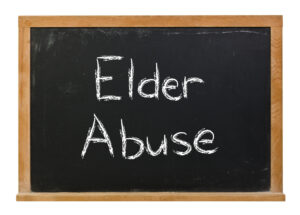In nursing homes, vulnerable adults are at risk of experiencing abuse and neglect, leading to severe injuries that can have long-lasting physical and emotional effects. Understanding the most common types of nursing home abuse injuries can be important for both residents and their families. By being aware of these risks, you can take the necessary steps to protect your loved ones and seek legal assistance if needed.
One common cause of nursing home abuse injury is physical abuse. This can include anything from hitting and pushing to improper use of restraints, resulting in bruises, fractures, and even head injuries. Signs of physical abuse may include unexplained injuries, changes in behavior, or staff members unwilling to explain how the injuries occurred.
Another prevalent type of abuse is emotional or psychological abuse. This abuse can manifest in the form of verbal insults, humiliation, or isolation. Over time, emotional abuse can cause significant emotional distress, leading to anxiety, depression, and withdrawal. Families and loved ones must understand the warning signs to protect their loved ones from this type of abuse.
Lastly, neglect is a serious form of abuse that can result in various injuries. Failure to provide proper medical care, hygiene, nutrition, or supervision can lead to injuries such as bedsores, malnutrition, dehydration, or infections. Neglect is often characterized by poor living conditions, untreated medical conditions, or inadequate staff-to-resident ratios.
By recognizing the signs of nursing home abuse injuries, you can take action to ensure your loved ones receive the care and support they deserve. Seeking legal assistance from a knowledgeable nursing home abuse attorney in Murrieta will help you face the legal process and seek justice for your loved one. Remember, you have the power to protect and advocate for those who may not be able to do so for themselves.
The Need for Nursing Homes

As we grow older, our ability to care for ourselves independently deteriorates, leaving family members with a difficult decision. Anyone who takes the step of moving to a nursing home must face a life-changing shift, fraught with worry about getting the best care.
There are many good reasons to move into a nursing home, not the least physical issues that make living alone or unassisted dangerous. The main reasons for placing seniors in assisted living or long-term care facilities are as follows:
- They cannot perform simple independent tasks, such as eating, using the restroom, standing up, or walking.
- Their cognitive health is poor, leading to forgetful and maybe dangerous situations.
- Their lack of capacity is making their life alone unpleasant.
- Their family is feeling exhausted through all the extra care they must now give their elder.
- They need professional medical care for debilitating conditions.
- They live a long distance from family members who cannot attend to their growing needs.
- Family members have run out of solutions.
What is Nursing Home Abuse?
Put simply, nursing home abuse is the poor treatment of older people at their living facility. As resident populations grow in nursing homes across the country, the stress and frustration of staff can also increase. Sometimes, staff members do not handle this properly, and they lash out and injure residents.
As mentioned above, different types of nursing home abuse can result in different injuries. As a loved one, always stay aware of any possible signs or injuries.
How Nursing Home Abuse Can Start
There are several catalysts for such a damaging scenario; these might include:
- Staff burnout
- Underpaid workers
- Understaffed location
- Incorrect or insufficient training
- Greed
- Impatience
The reasons vary for why abuse might happen, and a nursing home resident’s condition may encourage abuse. Cognitive ailments and diseases like Alzheimer’s disease can lead to confrontations with staff members. Meanwhile, abuse can also worsen existing conditions.
In any case, abuse of nursing home residents can lead to higher rates of depression and social isolation — in the worst cases, it can lead to premature death.
Types of Nursing Home Abuse

There is a spectrum of abuse, including forms of neglect that do not intentionally cause injury. Families must put faith in the system they choose. However, a loved one is at risk due to the following nursing home conduct:
- Isolation, whether it is from peers or family members
- Inattention to specific medical needs like bedsores
- Withholding privileges
- Poor dietary assistance that leads to malnutrition
- Financial exploitation, such as hidden or unexplained fee leverage
- Psychological abuse
- Physical abuse
- Verbal abuse or emotional bullying
- Wilful deprivation of food, medical care, or therapy
All of these charges might bring financial, physical, or emotional losses to a nursing home abuse victim.
Suppose you or your senior relative has experienced any of these assaults and injuries in a long-term care or assisted living facility. In that case, you should never wait to hire a nursing home injury lawyer.
What Are The Outcomes of Nursing Home Abuse?
There are many outcomes for nursing home abuse victims. Such an array of potentially abusive situations can lead to all kinds of negative consequences, including:
- Cuts, bruises, fractures, or broken bones. Depending on the level of abuse or neglect, these traumatic injuries can be quite severe.
- Mental health problems. Usually, abuse will affect the recipient’s happiness and mindset. This damage manifests in varying ways: depression, anxiety, insomnia, and loss of confidence are just some of them.
- Death. Nursing home abuse victims are far more likely to die because of physical abuse.
- Hospitalization. Those abused in a nursing home have a higher chance of hospitalization than other injury victims.
- Psychological damage. Nursing home abuse can spark or rekindle psychological episodes.
- Confidence. People experiencing nursing home abuse lose trust in the system designed to help them. Loss of trust in others will hurt anybody’s quality of life.
In the last case, some reports indicate that nursing home abuse victims may lose up to $28.3 billion every year. If you or a loved one has suffered nursing abuse of any form, you can hire a nursing home injury lawyer to seek damages.
Common Injuries from Nursing Home Abuse
It is very hard to gauge whether a loved one is suffering abuse due to added factors such as communication challenges, potential cognitive impairments, visiting rights access, and elder fear. Nonetheless, nursing home residents may show signs they are being abused, including non-verbal clues.
Indicators that a family member is being abused include any of the following:
- Bedsores.
- Bone breaks or fractures.
- Dental or facial injuries
- Bruising, welts, or skin burns.
- Cuts, grazes, or torn skin.
- Weight loss or severe loss of skin tone.
- Malnutrition or severe dehydration.
- Head trauma due to falls.
- Infections that might cause sepsis or blood infection.
- Sexually transmitted diseases with no explanation.
Nursing home abuse can be so harsh it even leads to wrongful death or terminal illness. If you notice any of these signs on a nursing home-bound loved one, a nursing home injury attorney can help win compensation.
Most Common Types of Nursing Home Injuries

There are many ways a nursing home resident can become injured in a non-physical or physical manner. Errors with medication, diet, or restraint might lead to certain injuries:
Head Injuries
Head trauma in older age can be fatal. Studies show that elderly patients are 50 percent more likely to die within 30 days of a head injury. Often, head injuries occur as a result of falling and hitting one’s head on a hard surface. Poorly assisted residents or those who are struck or pushed over are more likely to experience this injury.
Malnutrition and Dehydration
A badly trained nursing staff might neglect an older resident’s dietary needs — some patients require diligent monitoring. Residents who struggle to swallow or digest food might not get all the nutrition their body needs.
Choking
As we grow older, our ability to chew food weakens. Nursing homes that don’t monitor their guests’ eating needs effectively risk letting them choke. Food or even medication can cause a senior to choke.
Restraint Injuries
When nursing home members cannot move unaided, they might need temporary restraints. However, there are limitations, as residents should not be restrained for long periods, and staff should properly use restraints to avoid injuries. When they do not, injuries can result.
Sepsis
Sepsis is when white blood cells are overwhelmed by bacterial infection, which may manifest in a rapid heartbeat, fever, or fast breathing. An infection of one’s blood can lead to death.
Bed and Pressure Sores:
Bed sores are common in nursing homes because older residents have thinner skin, which takes longer to heal. Being left too long in the same position might cause a decrease in blood flow to the bonier regions of the body.
Blocked Breathing Apparatus
Some patients might require breathing aids. They may be injured through restricted breathing, especially if their tubes are blocked somehow.
Falls
Falls account for many deaths in nursing homes, and they can cause serious injury otherwise. When staff provide inadequate supervision, residents can easily fall over and cause many traumatic injuries.
Overdose
Running a nursing home is a complicated job, and maintaining an accurate meds regimen comes with mistakes. Negligence, bad planning, and incorrect dosage all lead to potential health issues, including a possible overdose of medication.
Nursing home abuse doesn’t only cause pain for the victim; their family members suffer in many ways. Taking care of an injured loved one requires time and medical attention. What’s more, the emotional trauma family and loved ones endure can be devastating.
Types of Damages You Can Seek
There are three forms of nursing home abuse losses: economic damages, non-economic damages, and punitive damages.
Economic Damages refer to any costs incurred as a result of the injury:
- Medical bills
- Prescription costs
- Stolen money
- Property Damage
Non-economic damages refer to losses relating to quality of life, though these can be hard to measure. Such intangible damages might include:
- Fear, loss of confidence, humiliation, or emotional changes;
- Mental fatigue or depression;
- Loss of life enjoyment;
- Physical or emotional pain and suffering
Punitive Damages are connected to acts stemming from fraudulent, malicious, or careless actions. In contrast to economic or non-economic damages that reward the plaintiff, punitive damages punish the abuser’s wrongdoing. If a nursing home looked the other way from serious physical abuse, it might be liable for punitive damages.
Wrongful Death Damages
Because our nursing home population is particularly vulnerable, some abuse cases might result in fatalities. Sadly, many family members, such as spouses, children, or even parents, might file a wrongful death claim.
Wrongful death damages may include:
- Medical costs incurred from illness before death;
- Loss of a companion;
- Pain and suffering caused to the bereaved parties;
- Funeral costs and burial fees.
How a Nursing Home Abuse Lawyer Can Help You
Contacting a nursing home abuse attorney means they will assess the situation and uncover exactly what happened to the victim. Their job is to ascertain every detail possible and:
- Bring justice to the affected parties, holding the abusive nursing home accountable for its practices.
- Win financial compensation for economic and non-economic damages for the victim.
- Gather documents and evidence, building the case for your lawsuit.
A nursing home abuse attorney will help a victim or family member learn all their rights before proceeding with any case. Better still, most nursing home abuse lawyers work on a contingency basis.
Working on Contingency

One feature of hiring such assistance is there is no need to pay upfront legal fees. Contingency also means that if the nursing home abuse attorney doesn’t win the lawsuit, they will not charge you. Their fee will come as a percentage of the settlement amount.
Such an arrangement brings peace of mind to any claimant. Having to deal with insurance professionals isn’t easy, not least when dealing with the emotional and financial aftermath of abuse.
The average nursing abuse lawsuit takes a while to settle, including preparation, negotiations, and settlement payment. Your attorney will provide valuable support throughout this time.
If you or a loved one has been the victim of nursing home abuse, don’t hesitate to call a personal injury lawyer in Murrieta today.